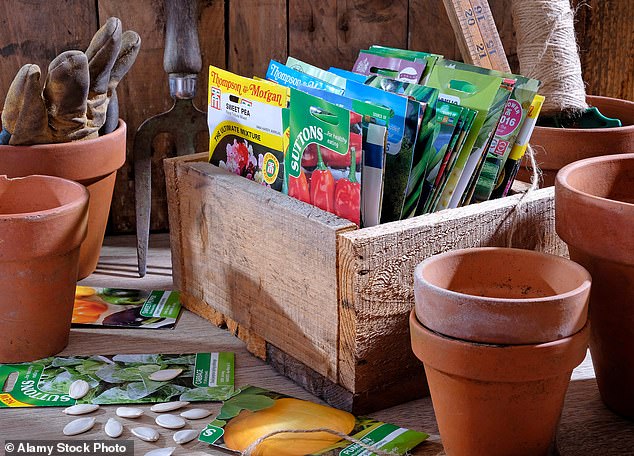SEE SEED CATALOGS
If you’re feeling a little sluggish these first few days of the new year, take comfort in the fact that it’s still too early to sow seeds due to low light levels.
Instead, lay back on the couch and browse some online seed catalogs or, if you’re doing a digital detox, there’s nothing better than paper versions that can be easily ordered by mail.
Read the descriptions of the growing conditions they require and only request those that suit your garden and the space available.
Make a list of the ones you like and then try to have something in bloom for each of the summer months.
Choose a mix of seeds that need to be grown under cover in a greenhouse, in a cold frame or on a sunny windowsill, and those that can be spread directly into the soil.
When it comes to flowers, I like to try new versions of my old favourites, such as the bright magenta Cosmos bipinnatus ‘Fandango’, the pale lilac poppy Papaver rhoeas ‘Amazing Grey’ and the multi-hued love in a mist Nigella damascena ‘Moody Blues’. ‘, all from the Golden Anniversary edition of the Chiltern Seeds catalog that began in a family dining room in Chesham, Bucks, in 1975.
Make a list of seeds you like and then try to have something in bloom for each of the summer months (File Image)
COOL COMFORT
Temperatures are set to plummet across the UK this week, meaning it’s not a good time to dig or plant anything.
If there is snow, it is tempting to leave steps or even a snow angel on the grass, but this can damage the grass underneath.
Many plants benefit from a cold snap and will soon spring back to life once it warms up again.
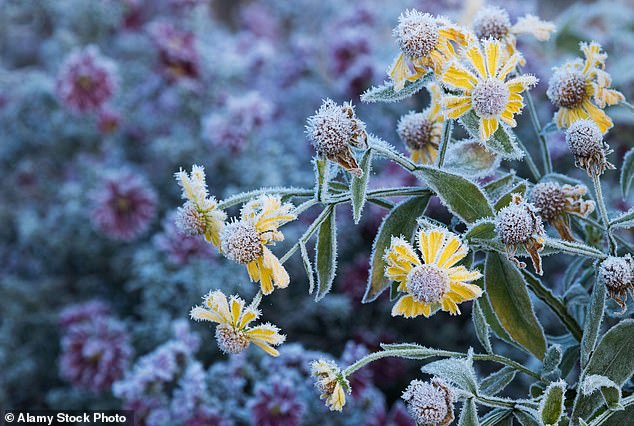
Temperatures are expected to plummet across the UK this week, meaning it’s not a good time to dig or plant anything (File Image)
REVIVE RUSTY TOOLS
While tools should be cleaned after each use, we often only have time to give them a quick wipe. So take advantage of this fallow period to clean them thoroughly.
Use a stiff brush to remove dried dirt and then apply a little oil or WD-40 with a cloth.
For rust, soak metal parts in vinegar and then in baking soda mixed with water.
Be sure to dry the wooden handles thoroughly.
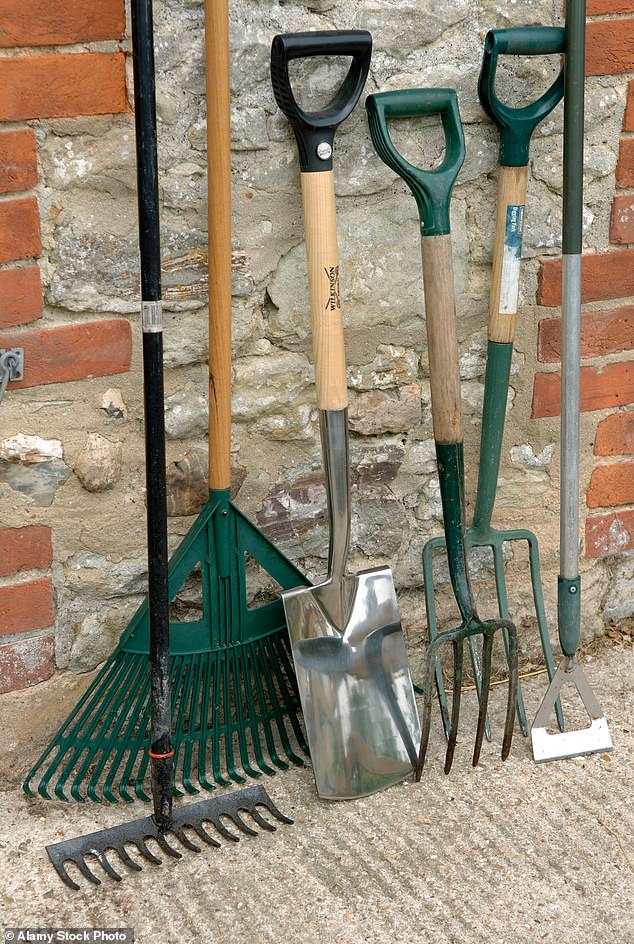
Use a stiff brush to remove dried dirt from your tools, then apply some oil or WD-40 with a cloth (File Image)
PLANT OF THE WEEK
EUPHORBIA CHARACIAS SILVER SWAN
In the dead of winter, this shrubby spurge looks spectacular covered in brilliant frost or snow frosting, with blue-green foliage edged in cream.
As it comes from the Mediterranean, it is drought resistant and totally hardy, preferring a well-drained site in full sun.
It can grow up to 1m wide and 1.2m tall and is biennial, meaning the stems will produce leaves in the first year and flowers in the second year.
After flowering, cut the stems to the base, wearing gloves as the milky sap is irritating.
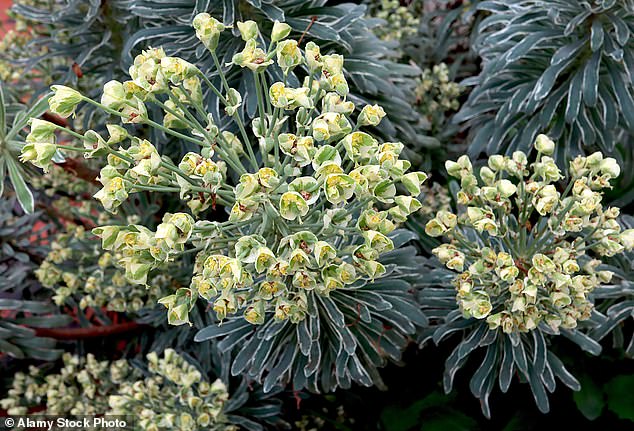
In the dead of winter, Euphorbia Characias Silver Swan looks spectacular covered in brilliant frost or snow frosting, with blue-green foliage edged in cream (File Image)
READER QUESTION
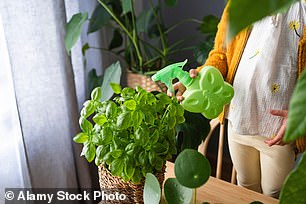
At this time of year, most houseplants are dormant and therefore only require minimal watering (File Image)
Should I water my houseplants during the winter?
Claire Clarke, Bristol.
At this time of year, most houseplants are dormant and therefore only require minimal watering.
Test the soil with your fingers and wait until it feels dry to the touch before watering, and even then, only every two weeks or so.
The exception is winter-flowering plants, such as poinsettias and Christmas cacti, which should be watered as soon as they feel dry.
I fill a small can with cold water and leave it until it is warm so as not to shock the plant too much.


